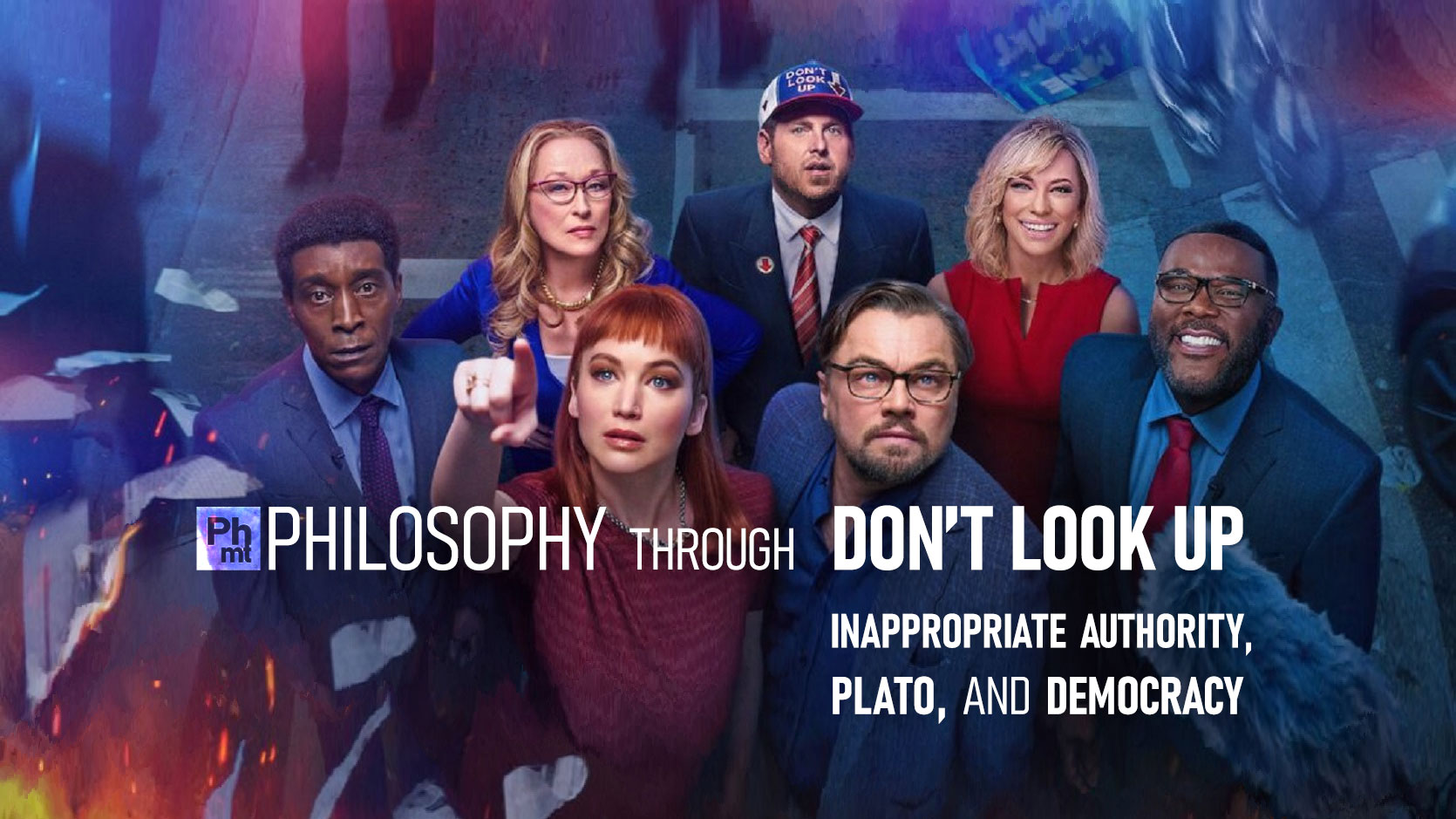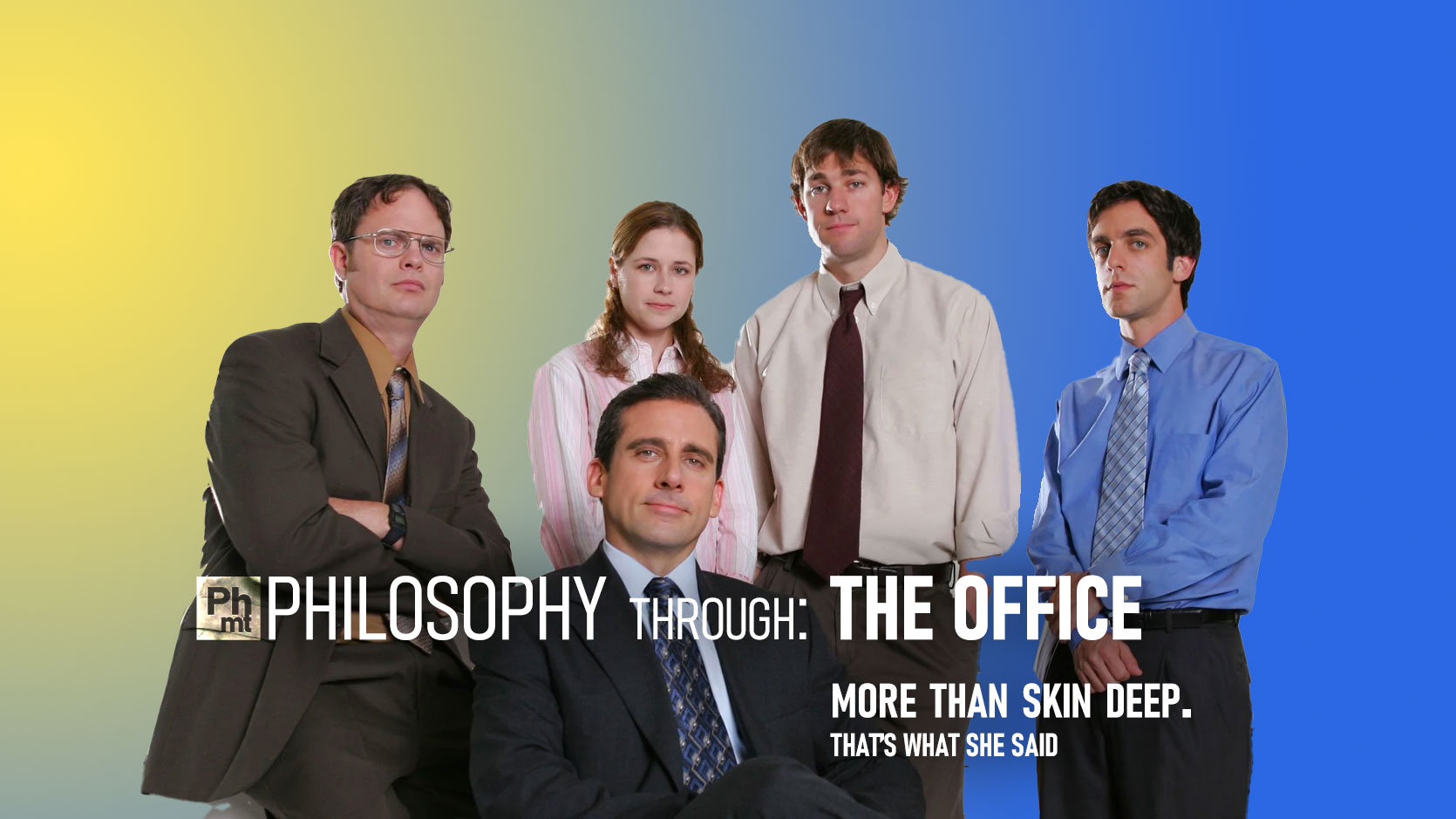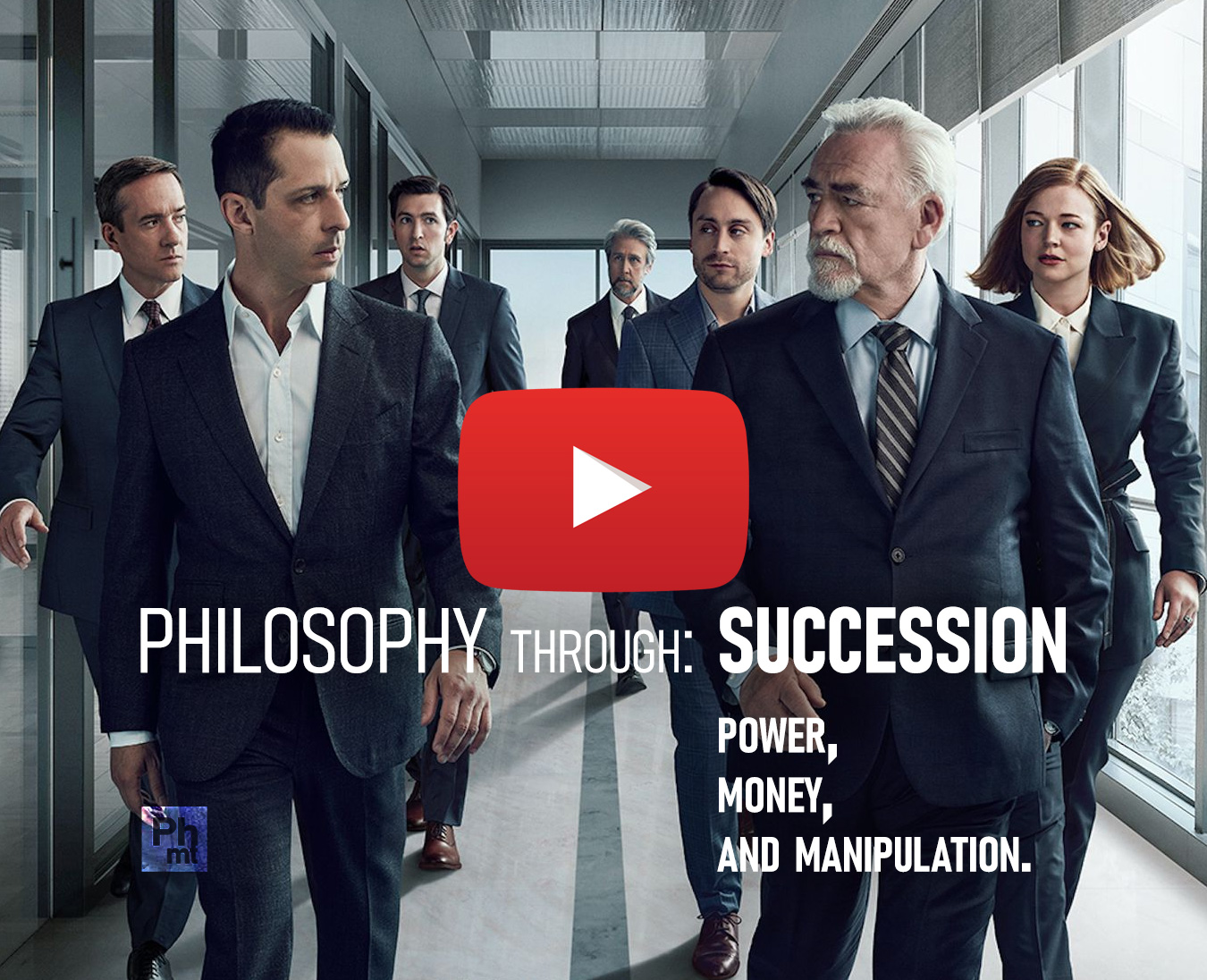Philosophy through Don’t Look Up: Inappropriate authority, democracy, and Plato
NOTE: Not fond of MAJOR SPOILERS? Read something else instead.
Set in a contemporary version of the United States, the premise of Don’t Look Up is a sci-fi trope that Hollywood has been rehashing for decades: astronauts notice and want to stop an asteroid catastrophically headed towards earth.
Armageddon and Deep Impact (both from 1998) came out months shy of the new millennium. They rode what was a popular wave of near-hysteria of impending apocalypse: at the heart of this millennial apocalypse were drivers as random and disparate as a flaw in how dates were programmed in early computers (the Y2K bug)1, as well as obscure citations from… wait for it… Nostradamus.2
The film stars big names. Directed and co-written by Adam McKay, it boasts a line-up of Hollywood’s who’s who: Leonardo DiCaprio, Jennifer Lawrence, Meryl Streep, Cate Blanchett, Jonah Hill, Ron Perlman, Timothée Chalamet, and others throw their names and weight behind it.
Don’t Look Up tries to one-up its predecessors in the genre by making its plot and characters serve as an allegory. It’s a satire of these times we live in. Hollywood’s affinity towards left-leaning politics is no secret, nor is its general antipathy towards the most recent symbol of the antagonist: Donald Trump. In this regard, the film finds an effortless inspiration and target.
Film synopsis
“Kate Dibiasky (Jennifer Lawrence), an astronomy grad student, and her professor Dr. Randall Mindy (Leonardo DiCaprio) make an astounding discovery of a comet orbiting within the solar system. The problem: it’s on a direct collision course with Earth. The other problem? No one really seems to care. Turns out warning mankind about a planet-killer the size of Mount Everest is an inconvenient fact to navigate. With the help of Dr. Oglethorpe (Rob Morgan), Kate and Randall embark on a media tour that takes them from the office of an indifferent President Orlean (Meryl Streep) and her sycophantic son and Chief of Staff, Jason (Jonah Hill), to the airwaves of The Daily Rip, an upbeat morning show hosted by Brie (Cate Blanchett) and Jack (Tyler Perry). With only six months until the comet makes impact, managing the 24-hour news cycle and gaining the attention of the social media obsessed public before it’s too late proves shockingly comical — what will it take to get the world to just look up?!”
Movie info on Rotten Tomatoes
The intent of this review is not to evaluate the artistic merit of Don’t Look Up. Instead, we will look at the movie as a platform for philosophical reflection. Let’s start with the first: appeal to inappropriate authority.
Inappropriate authority
Appeal to inappropriate, or false, authority is a type of logical fallacy. Typically, it is committed when a person or group of persons place themselves or are placed as an authority on a topic or a subject, when they actually aren’t. To claim a more appropriate authority, they would needs to report on their field of expertise, on facts about which there is some agreement within the field, and with enough reason to believe that they can be trusted.3 If they fail these qualifiers they become an inappropriate authority.
The fallacy of appeal to false authority usually has the following structure:
- Let x stand for someone whose area of expertise is field y.
- Let z stand for x‘s position on something that falls outside field y.
Another way to explain this fallacy can be:
- According to x, who’s an authority on y, z. Therefore, z is true.
Let’s replace the variables with meaningful statements.
According to Dr Calder, who is a medical doctor (and perhaps an excellent one), this comet is just mass hysteria and we shouldn’t worry about it. Therefore, we shouldn’t worry about it.
More about this further down, but for now let’s state the obvious about this fallacy: as brilliant a doctor as Dr Calder may be, she should be careful about making assertions outside her field of expertise, for which she can be considered an inappropriate authority.
Favouritism: cronyism and nepotism
Don’t Look Up uses inappropriate authority as a plot device, beyond the logical fallacy.
Inappropriate authority can be taken in another sense, and that is of people gaining positions of power and authority well beyond their competence.
President Orlean is a former reality television star, unashamed of being anti-science and anti-intellectual. Orlean is modelled on the real-life former President of the USA, Donald Trump. As Don’t Look Up was preparing to film, and as California was being ravaged by historic wildfires, he reportedly told California’s secretary for natural resources that he though the earth was going to “start getting cooler – you just watch.” Crowfoot responded that the science didn’t agree with the president, to which Trump added, “Well, I don’t think the science knows, actually.” 4
People in power like Orlean and Trump usually surround themselves with people they feel they can trust. They gravitate towards a selfish utilitarian tendency to reward those closest and most loyal to them, or those from whom they will gain best; they may or may not factor in competence. Rather than deservedly employing experts in the field, they fall back on favouritism, cronyism, and nepotism. The practice is intended to protect those in power by building around them a system of people with some common interest in keeping that power, such as being a member of the same party or family. This sometimes translates into key positions — positions of authority — in critical ministries and government agencies being inappropriately given to people with limited knowledge in the field, rather than to experts.
Don’t Look Up illustrates this tendency where the ruling clique sticks to their own ilk. To start with, the president’s chief of staff is her own detestable son, the “entirely disinterested and arrogant” Jason (Jonah Hill), ostensibly chosen not because of technical skill or knowledge, but out of nepotism. Disinterestedness may arguably be one of the faultiest traits of a White House chief-of-staff, particularly when facing the calamity of an Armageddon.
Cronyism, the practice of appointing friends and associates without proper regard to qualifications, is made particularly explicit in a scene set inside a media room, analyzing an earlier TV appearance by Dr Mindy (DiCaprio) and Dibiasky (Lawrence). In the scene, we are told that the head of NASA herself, a Dr Jocelyn Calder, calls Mindy and Dibiasky’s claims “more near-miss astronomy hysteria.” Soon after, we learn that Dr Calder, while being a “Dr”, is not a doctor of astronomy but a former anesthesiologist. Moreover, she is also a super donor to the president; a donor is someone who helps finance a political candidate or party. Her inappropriateness to the position is twice removed, to use a Platonic expression. Without financing (that is, money), candidates would have a hard time campaigning; money is an intricate part of democracy.
A Platonic assessment of democracy
Democracy evolved in parts of the ancient world, with the Greek city of Athens being one of the most illustrious examples.
This is not to say that Athenian democracy and the type of democracy mostly adopted today is identical. Athens enjoyed what is called a direct democracy, with every male citizen entitled to speak and vote in an assembly on major decisions. On the other hand, modern democracies are representative democracies, where voters elect a small number of officials who make decisions on behalf of the people. A second difference is that, unlike today, many public offices were filled by lot.
In Books VIII and IX of Republic, Plato looks at and analyzes the weaknesses of different types of government, ridiculing the way in which democracies tend to think of freedom as “the right not to be governed by anyone,” and equality as “the equal value of every whim.”5
Moreover, political rule should be left for the wise, not the whimsical, and no one would be a wiser ruler than the philosopher, Plato tells us, who dedicates his whole life and work to one purpose: to be a wise and educated ruler with his eyes set on the common good. President Orlean, with her narcissism, shallow egoism, and anti-intellectual spirit, is a far cry from Plato’s ideal philosopher king. Leaving behind the fictional box of Don’t Look Up, taking a wide look around the real world shows us more than enough examples of real-life Orleans. Like Orleans, they have been put in power by “the people.”
Democracy is a system of government by the whole population.
The way democracy works is that it gives everyone an equal voice, which Plato finds preposterous if we wanted a state working at its best. If we wanted to build a house, we wouldn’t go to a tailor, but an architect; if we were sick, we’d seek a medical doctor, not an architect. There are very many specialisations in society, whose aim is to give the appropriate, highest possible service towards the common good. We make sure that those working in those fields can excel, by having proper ability and education. Political rule should not be treated any different. Not anyone can work as an auditor, a farmer, or a carpenter; to do these jobs people need to have proper skill, acquired through education and training. However, democracy, especially a direct democracy like Athens’, gives everyone political power without requiring them to be properly trained.
Furthermore, even a representative democracy, like most modern democracies, where you have an elected group doing the heavy lifting, suffers from being subject to the control of the larger population. A politician stands to gain from keeping his or her constituents sufficiently happy. If he doesn’t, they will not vote for him, and the happiness of constituents may not always coincide with the common good.
Moreover, as seen earlier, politicians need to finance their political campaigns, meaning that they may be prompted to trade funding for favours, as is ostensibly the case between President Orlean and the head of NASA.
In this case, Don’t Look Up allows to draw at least two observations.
First is one related to the rewarding of partisan friendships with public, state-sponsored and state-funded positions. In itself, this doesn’t mean that the chosen person may not be able to deliver and deliver very well. Yet, it should be ensured that decisions at top-level are taken with the common good in mind and in the best interest of the public. Positions given as a favour are susceptible to corruption.
Second, there is a serious risk of putting someone sub-par in a top-level position. At the least, the chosen person may lack expertise; at worst, they may be a total incompetent. Public positions should be given to the most competent experts chosen from the widest pool possible. By limiting the options, we are also limiting the choices, and arguably limiting the quality, with disastrous results.
So, what do we do with democracy?
There are weaknesses inherent to democracy, such as the danger of giving us ineffective and incompetent leaders, or of depending on the will of the majority at the expense of minorities. Nevertheless, democracy also has its strengths, such as encouraging equality, fostering participation and dialogue, ensuring a smooth transfer of power, and giving people a chance to be personally involved in their government.6 Can democracy be saved?
A criticism often levelled at Plato is that he was against rule by the many. However, that is not correct. Plato’s objection to democracy was that he saw it as susceptible to giving political power to the uneducated, the untrained, the unskilled, and those not mature enough. Most However, that need not be the case.5
Richard Kraut [Kraut:2018] suggests a thought experiment that addresses education, while virtually allowing every citizen to take part. He points out that all the democracies that we know of give the vote to citizens very soon after emerging from their childhood, when they still lack the experience, maturity, knowledge, and insight we hopefully develop later in life.
Imagine holding off the right to vote until people are 50 years old, an age when we can identify both with those much younger, and those much older. At that age, people tend to know “something about history, economics, the life sciences, and the physical sciences. They have read many of the works of the poets, dramatists, and novelists. Those who exhibit anti-social or psychopathic tendencies have been disqualified. So too those who have an ineliminable antipathy to certain groups simply because they are different or outsiders.”5
In their younger years, between the ages of 20 and 50, citizens would be given an education, appropriately preparing them to eventually start being politically active, at age 50. Then they would then spend the next ten years of their lives thus engaged, until they turn 60, at which point they retire well before old age sets in.
Kraut’s thought experiment seems to satisfy Plato’s concern, that we are led by those incompetent to lead. Remarkably, it does this while still allowing everyone (as long as they qualify) to vote. While far from perfect, it manages to go some way in that direction compared to the bleak parody of our real world portrayed by the film.
Have you watched Don’t Look Up? What did you think of it? Leave your comment below.
Citations
- 1.Hahn JD. 20 Years Ago, Y2K Hysteria Led to Emergency Bunkers and Cost the U.S. $100 Billion. People. Published April 12, 2019. Accessed January 10, 2022. https://people.com/human-interest/y2k-millennium-bug-20-year-anniversary/
- 2.Bleilier EF. Nostradamus. Washington Post. Published September 12, 1999. Accessed January 10, 2022. https://www.washingtonpost.com/archive/entertainment/books/1999/09/12/nostradamus/a3fa24e0-55ad-4950-99ac-33da11f3c0b8/
- 3.Author unnamed. Irrelevant Authority. Texas State University. Accessed January 12, 2022. https://www.txstate.edu/philosophy/resources/fallacy-definitions/Irrelevant-Authority.html
- 4.Crow D. Don’t Look Up: Who Are the Characters Based On. Den of Geek. Published December 24, 2021. https://www.denofgeek.com/movies/dont-look-up-who-characters-based-on/
- 5.Kraut R. Plato Against Democracy, A Defence. In: Virtue, Happiness, Knowledge. Oxford University Press; 2018:77-96.
- 6.Miller K. 20 Advantages and Disadvantages of Democracy. Future of Working. https://futureofworking.com/11-advantages-and-disadvantages-of-democracy/



